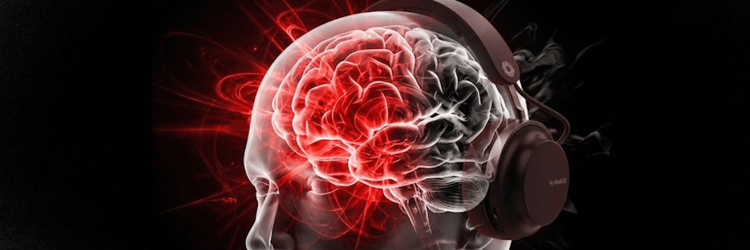You know what no productivity app, guru, influencer or book warns you about?
You crying in the bathroom between back-to-back meetings, even though you kill it once you enter the conference room.
We talk a lot about tools, time, and tasks, but rarely about the thing quietly running the show: your emotional health.
Because a dent in your emotional health doesn’t show up through a dramatic meltdown where you’re thrashing laptops and tearing documents. Sometimes, it’s just snapping at a teammate for asking a question. Or staring at your screen for hours and producing absolutely nothing. Things that seem absolutely normal, but aren’t.
We tend to think peak performance is allll about hustle, discipline, 5 AM ice baths and morning runs. But more often, it’s about emotional regulation, awareness, and resilience the boring, invisible stuff no one wants to talk about.
This is THE wake-up call for all high performers who look fine on paper, but feel like they’re breaking inside. We’re going to connect the dots between emotional intelligence, productivity improvement, and why your feelings aren’t the enemy. They’re what makes you feel fulfilled even after a hectic week at work.
What Is Emotional Health? (And Why It Matters at Work)
Let’s get this out of the way first: emotional health is not the same thing as mental health.
They’re related, yes, but not identical.
If mental health is the overall state of your psychological well-being, emotional health is more specific. It’s your ability to understand, regulate, and express your emotions without letting them hijack your day.
At work, emotional health shows up in quiet, ‘between-the-lines’ ways. It’s the difference between:
- Giving constructive feedback to your junior vs. bottling up resentment and doing all the work because “nobody else does it right”.
- Responding calmly in a tense meeting vs. reacting with passive-aggression.
- Getting through the day with clarity vs. running on autopilot and way too many litres of caffeine.
So it’s safe to say - when your emotional health begins to slip, so does everything else.
Workplace productivity, decision-making, communication, even how you handle feedback all of it gets shaky. Not because you don’t care. But because your brain is spending all its energy just trying to stay afloat and get through the day, it’s unable to work with clarity.
The irony? People with poor emotional health often look like they’re functioning just fine. They’re showing up to meetings, hitting deadlines (mostly), replying to emails. But inside? It’s just survival mode.
These are the people who, after a point, tend to ‘hate their job’, quit a workplace every 6 months, or walk into work each day like zombies not energised, not inspired. (Excluding those who work in extremely toxic environments their emotional health doesn’t stand a chance.)
That’s why understanding emotional regulation isn’t a “nice-to-have.” It’s essential if you want to stay focused, collaborative, sane, reduce brain fog and achieve your professional milestones.
How Emotions Impact Productivity (Science + Reality)
No one does their best work while silently spiralling.
You could have the cleanest Notion setup and the most detailed task list, but if you're anxious, angry, overwhelmed, or just plain checked out productivity doesn’t stand a chance.
That’s because emotions don’t just affect your mood. They affect your cognitive function, your decision-making, your ability to communicate clearly, and how long you can focus before zoning out entirely. (cognitive function)
Here’s the TL;DR of how emotions impact productivity:
Positive emotions fuel focus. Negative ones drain it. And most of us are stuck in a low-key emotional slump without even realising it.
Stress? Kills your attention span. Overwhelm? Reduces working memory. Frustration? Wrecks your communication. Even mild anxiety eats away at your ability to prioritise and stay present — you start fixating on imaginary problems and missing the real ones.
Suggested Blog: 9 Effects of Lack of Focus: How It's Quietly Damaging Your Career
This is why emotional health isn’t just a soft skill. It’s a performance enhancer.
Especially if you’re a team leader or manager. Your emotional state isn’t just your business it’s everyone’s business. One person’s dysregulation can impact an entire team’s energy and effectiveness.
(You know this. You’ve worked with people who walk in, sigh loudly, and derail the vibe of a 6-person project.)
Peak performance isn’t about being emotionless. It’s about knowing how to manage what you feel, so your output isn’t controlled by your emotions.
And once you’ve mastered your emotional intelligence, it’s easier to actively improve your focus, attention and enter flow state at your workplace and get stuff done.
Emotional Intelligence at Work: Your Competitive Edge

Your skillset is what gets you hired.
Emotional intelligence (EQ) is what keeps you consistently promoted, respected, and not one of the reasons behind the creation of the “unofficial” work group chats.
Emotional intelligence at work isn’t just about being “nice” or “empathetic.” It’s the skill of noticing what you feel and treating it as important, skillfully regulating it without imploding, reading the room without needing an emotional support colleague, and responding to chaos with calm instead of cortisol.
In other words: it’s the stuff that makes people want to collaborate with you. Follow you. Trust you.
That’s why high-EQ professionals are the ones who consistently drive peak performance, especially when things get messy.
No, seriously, think about the one senior you’d run to when/if things boil over, and why is it always the one who fits the exact description of an emotionally intelligent leader?
To make it easier here’s what makes up emotional intelligence:
- Self-awareness: Knowing you’re stressed before you scream at your laptop.
- Self-regulation: Not screaming at your laptop, and entering flow state with ease.
- Motivation: Showing up with purpose, not just for the paycheck.
- Empathy: Understanding what others need (not just what you think they need). And if you don’t know, simply asking them.
- Social skills: Managing relationships without creating unnecessary HR cases.
And no, this isn’t fluff. Studies show that teams with high emotional intelligence outperform low-EQ teams by a mile.
In a world where technical skills are common and easy to attain, EQ is what sets you apart. It’s your edge. Your unspoken, invisible advantage.
Building emotional intelligence that’s where the real power is.
Common Emotional Traps That Kill Productivity (And How to Avoid Them)
Sometimes, it’s not the workload. It’s the emotional static in your brain that slows everything down.
You're halfway through a task, but replaying a comment from a conversation you had last night. You rewrite the same email five times with the same typos. You say yes to a sixth project even though you're already underwater.
These are very obviously NOT time management issues, though they may be portrayed as such.
Here are a few emotional traps that quietly destroy productivity, and what to do about them:
1. Overthinking
You spend more time thinking about doing the task than actually doing it. Every decision feels like a minefield.
Give yourself a mental deadline. 10 minutes to overthink, then act.
2. People-Pleasing
You’re agreeable to a fault. Saying “yes” feels easier than setting boundaries until you’re juggling 12 priorities and silently panicking.
Pause before you respond. “Let me check my workload”, buys you time and protects your energy.
3. Impostor Syndrome
This is a big one, and not uncommon at all. Despite solid wins, you feel like you don’t belong. So you overcompensate by overworking, overpreparing, and overextending.
Keep a running list of things you’ve done well. Read it when doubt creeps in. (It will.)
4. Perfectionism
If it’s not flawless, it’s not finished, which means nothing gets out the door. You start drowning in drafts, and hence, delays.
Done is better than perfect. 90% is usually enough. Ship it.
These aren’t just productivity blocks. They’re patterns. And without emotional regulation, they’ll quietly wreck your momentum.
You don’t need a personality overhaul. Just better tools. Journaling, mindfulness, wearable devices like Sychedelic, CBT-style reflection whatever floats your boat.
Suggested Blog: They Designed Your Screens to Ensure You Fall Behind
Creating Emotionally Intelligent Work Cultures
You can’t build high-performing teams without emotional intelligence.
Culture isn’t built by all-hands meetings or values posters. It’s built in everyday interactions.
Teams thrive when emotional health is normalised, not avoided. That starts with psychological safety, where people can speak up, admit mistakes, and ask questions without bracing for backlash. Recognition matters too constructive feedback that guides employees and helps them improve and grow. Quick shoutouts or “you handled that well” messages go a long way.
And in remote or hybrid setups, you need to work even harder to check in, not just on projects, but on people. Skip the performative stuff. Ask real questions like “What’s draining you this week?” or “What is something you need from our end that’s lacking?”, and actually listen.
An emotionally intelligent culture isn’t soft. It’s efficient. Fewer silos. Less drama. More trust. And yes a huge boost to team productivity.
Productivity doesn’t start with time management, it starts with emotional self-awareness. If your brain is always in fight-or-flight, your work will always feel harder than it ever needs to.
Emotional intelligence isn’t made up. It’s what makes high performance sustainable.
It’s what separates people who show up on autopilot from the ones who lead with clarity, empathy, and resilience.
Start small. Maybe a 2-minute check-in before your workday. Or naming how you feel before you jump into a task.
So here’s your nudge: What’s one emotional habit you’ll build starting today?
FAQs
Q: How does emotional health impact productivity?
Emotional health affects focus, communication, and energy levels. When it’s ignored, workplace productivity drops even if you’re working long hours.
Q: Can emotional intelligence be learned at work?
Yes. Like any skill, emotional intelligence at work grows with practice — through feedback, reflection, and better team dynamics.
Q: What emotions affect focus the most?
Stress, anxiety, and frustration limit attention and decision-making. Positive emotions improve clarity, flow, and productivity improvement.
Q: What are tools to support emotional health at work?
Try journaling, therapy, pulse surveys, async check-ins, or coaching. Try Sychedelic book a demo to rest and focus. Rebuild your emotional health as you rest and regenerate your energy for the next day.
Q: How do I stop emotions from derailing my workday?
Start by naming what you feel. Then regulate it. Awareness fuels better action.
More in Productivity













